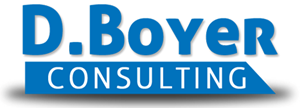Business is mostly conducted via email or phone communications.
Office hours 10:00 a.m. to 6:00 p.m, Mon. - Thurs., and 10:00 a.m. to 2:00 p.m. on Fridays.
SEND EMAIL INQUIRIES DIRECTLY TO:
Dawn.Boyer@me.com
Business is mostly conducted via email or phone communications.
Office hours 10:00 a.m. to 6:00 p.m, Mon. - Thurs., and 10:00 a.m. to 2:00 p.m. on Fridays.
SEND EMAIL INQUIRIES DIRECTLY TO:
Dawn.Boyer@me.com
Business is mostly conducted via email or phone communications.
Office hours 10:00 a.m. to 6:00 p.m, Mon. - Thurs., and 10:00 a.m. to 2:00 p.m. on Fridays.
SEND EMAIL INQUIRIES DIRECTLY TO:
Dawn.Boyer@me.com
Converting the DEI-based ‘red-flag’ resume
February 26th, 2025 by Dawn Boyer

Once the new government administration started in January, the flurry of government employee actions and corporations scrambling to exit corporate policies related to Diversity, Equity, and Inclusion (DEI) initiatives resulted in hundreds of DEI workers ‘out on the street.’ Their core experience, skill sets, and education may now be ‘red flags’ on their resume with the trending (and growing) non-acceptance of DEI initiatives. This environment might hinder those DEI workers from qualifying for positions in companies that are no longer interested in those policies.
How does one rewrite one’s resume to avoid the ‘red flag waving’ on a pariah topic in today’s business, administrative, and cultural environment? The answer is to generalize and parallel the skills and experience to broader capabilities. Below are examples from DEI job description bullets and ‘replacement’ wording avoiding DEI-focused content.
- DEI: Develop and implement diversity and inclusion strategies and initiatives aligned with the overall business strategy.
Replacement: Research, identify, analyze, and develop communications strategies aligned to business goals, targeting a baseline of mutual respect for co-worker’s capabilities and job tasking in the labor pool.
- DEI: Conduct assessments and audits of company diversity policies and practices. Develop strategies to measure and track diversity and inclusion initiatives and hiring metrics directly related to those policies.
Replacement: Conduct audits of personnel files to ensure that EEOC-based hiring practices and promotional opportunities are followed in job requisition advertising, interviewing, hiring, and placement. Assist in or create federally mandated reports providing statistical-based metrics per hiring practices and identification of recruiting practices targeting minorities or other protected classes (e.g., veterans, gender, disabled, religion) under the EEOC guidelines for hiring.
- DEI: Facilitate training on diversity, equity, and inclusion topics; promote awareness of diversity, equity, and inclusion communication through internal/external channels.
Replacement: Conduct supervisory training on EEOC-based hiring and promotional practices; mentor supervising managers on interviewing (questions, review of applications, job skill requirements comparisons to resumes) to choose candidate(s) based on qualifications, skills, education, and experience, resulting in fair hiring practices compliant with federals, state, and local hiring regulations.
- DEI: Establish partnerships with diversity-based community organizations.
Replacement: Identify and promote recruiting sources for job announcements and advertising to increase the potential pool of qualified candidates in minority, veteran, and disabled applicants for the geographic location of work sites. Document recruiting efforts within the job requisition logs. Compile documentation for qualification-based decisions for hire.
- DEI: Address/resolve diversity-related issues and conflicts within the organization
Replacement: Counsel and mentor employees on business and professional communications, resolve personal conflicts and issues related to tenure- and skills-based promotional opportunities and internal job applications. Counsel employees with issues related to race, gender, veteran status, or religion and recommend disciplinary actions where warranted. Quality assures compliance with company policies and federal or state EEOC regulatory mandates during investigations and disciplinary decisions.
- DEI: Update human resources, supervisory staff, and managers on legislation, regulations, and workplace trends for diversity-based initiatives.
Replacement: Update human resources and supervisory staff and managers on current and forthcoming legislation, regulations, and workplace trends related to EEOC compliance. Ensure EEOC provisions and adherence during hiring actions and decisions are publicized on recruiting materials and company communications.
Workers hired specifically for Diversity, Equity, and Inclusion (DEI) initiatives with resumes loaded with the keywords for that career path do have valuable skills and experience. The trick is to reword the resume to creatively apply the expertise to less controversial career descriptions and emphasize capabilities to catch the attention of a hiring company. The job seeker should remove words and phrases that indicate work in a (now) ‘pariah field’ and emphasize more generalized experience and skills to promote their broader capabilities, regardless of the job or industry.
Dawn Boyer, Ph.D., owner of D. Boyer Consulting – provides resume writing, social media management and training, business development, and human resources consulting. Reach her at Dawn.Boyer@DBoyerConsulting.com or http://dboyerconsulting.com.
Readers Comments
Converting the DEI-based ‘red-flag’ resume
February 26th, 2025 by Dawn Boyer

Once the new government administration started in January, the flurry of government employee actions and corporations scrambling to exit corporate policies related to Diversity, Equity, and Inclusion (DEI) initiatives resulted in hundreds of DEI workers ‘out on the street.’ Their core experience, skill sets, and education may now be ‘red flags’ on their resume with the trending (and growing) non-acceptance of DEI initiatives. This environment might hinder those DEI workers from qualifying for positions in companies that are no longer interested in those policies.
How does one rewrite one’s resume to avoid the ‘red flag waving’ on a pariah topic in today’s business, administrative, and cultural environment? The answer is to generalize and parallel the skills and experience to broader capabilities. Below are examples from DEI job description bullets and ‘replacement’ wording avoiding DEI-focused content.
- DEI: Develop and implement diversity and inclusion strategies and initiatives aligned with the overall business strategy.
Replacement: Research, identify, analyze, and develop communications strategies aligned to business goals, targeting a baseline of mutual respect for co-worker’s capabilities and job tasking in the labor pool.
- DEI: Conduct assessments and audits of company diversity policies and practices. Develop strategies to measure and track diversity and inclusion initiatives and hiring metrics directly related to those policies.
Replacement: Conduct audits of personnel files to ensure that EEOC-based hiring practices and promotional opportunities are followed in job requisition advertising, interviewing, hiring, and placement. Assist in or create federally mandated reports providing statistical-based metrics per hiring practices and identification of recruiting practices targeting minorities or other protected classes (e.g., veterans, gender, disabled, religion) under the EEOC guidelines for hiring.
- DEI: Facilitate training on diversity, equity, and inclusion topics; promote awareness of diversity, equity, and inclusion communication through internal/external channels.
Replacement: Conduct supervisory training on EEOC-based hiring and promotional practices; mentor supervising managers on interviewing (questions, review of applications, job skill requirements comparisons to resumes) to choose candidate(s) based on qualifications, skills, education, and experience, resulting in fair hiring practices compliant with federals, state, and local hiring regulations.
- DEI: Establish partnerships with diversity-based community organizations.
Replacement: Identify and promote recruiting sources for job announcements and advertising to increase the potential pool of qualified candidates in minority, veteran, and disabled applicants for the geographic location of work sites. Document recruiting efforts within the job requisition logs. Compile documentation for qualification-based decisions for hire.
- DEI: Address/resolve diversity-related issues and conflicts within the organization
Replacement: Counsel and mentor employees on business and professional communications, resolve personal conflicts and issues related to tenure- and skills-based promotional opportunities and internal job applications. Counsel employees with issues related to race, gender, veteran status, or religion and recommend disciplinary actions where warranted. Quality assures compliance with company policies and federal or state EEOC regulatory mandates during investigations and disciplinary decisions.
- DEI: Update human resources, supervisory staff, and managers on legislation, regulations, and workplace trends for diversity-based initiatives.
Replacement: Update human resources and supervisory staff and managers on current and forthcoming legislation, regulations, and workplace trends related to EEOC compliance. Ensure EEOC provisions and adherence during hiring actions and decisions are publicized on recruiting materials and company communications.
Workers hired specifically for Diversity, Equity, and Inclusion (DEI) initiatives with resumes loaded with the keywords for that career path do have valuable skills and experience. The trick is to reword the resume to creatively apply the expertise to less controversial career descriptions and emphasize capabilities to catch the attention of a hiring company. The job seeker should remove words and phrases that indicate work in a (now) ‘pariah field’ and emphasize more generalized experience and skills to promote their broader capabilities, regardless of the job or industry.
Dawn Boyer, Ph.D., owner of D. Boyer Consulting – provides resume writing, social media management and training, business development, and human resources consulting. Reach her at Dawn.Boyer@DBoyerConsulting.com or http://dboyerconsulting.com.












